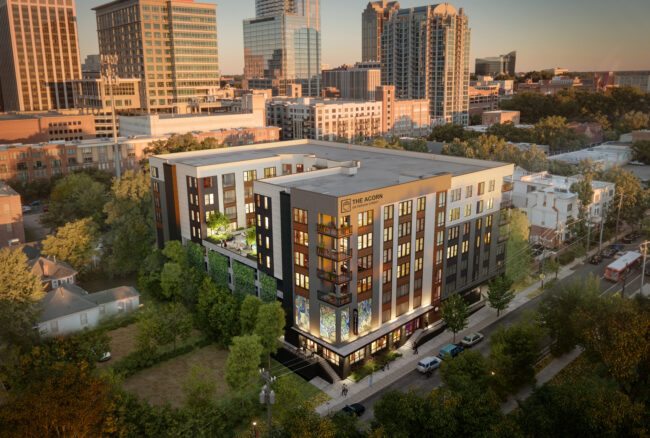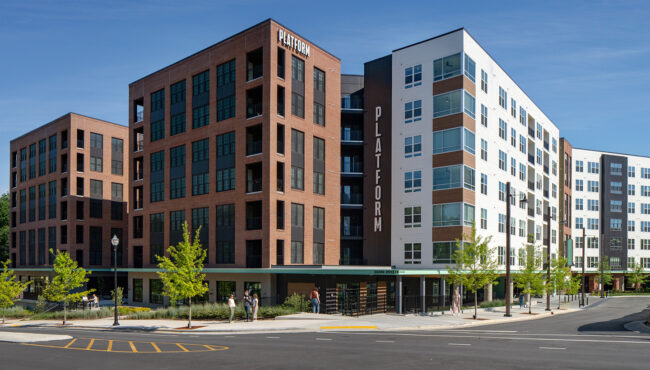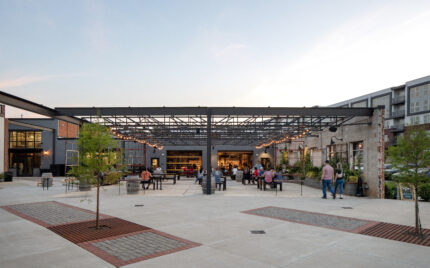Reimagining Cityscapes: A Vision for Sustainable Urban Growth
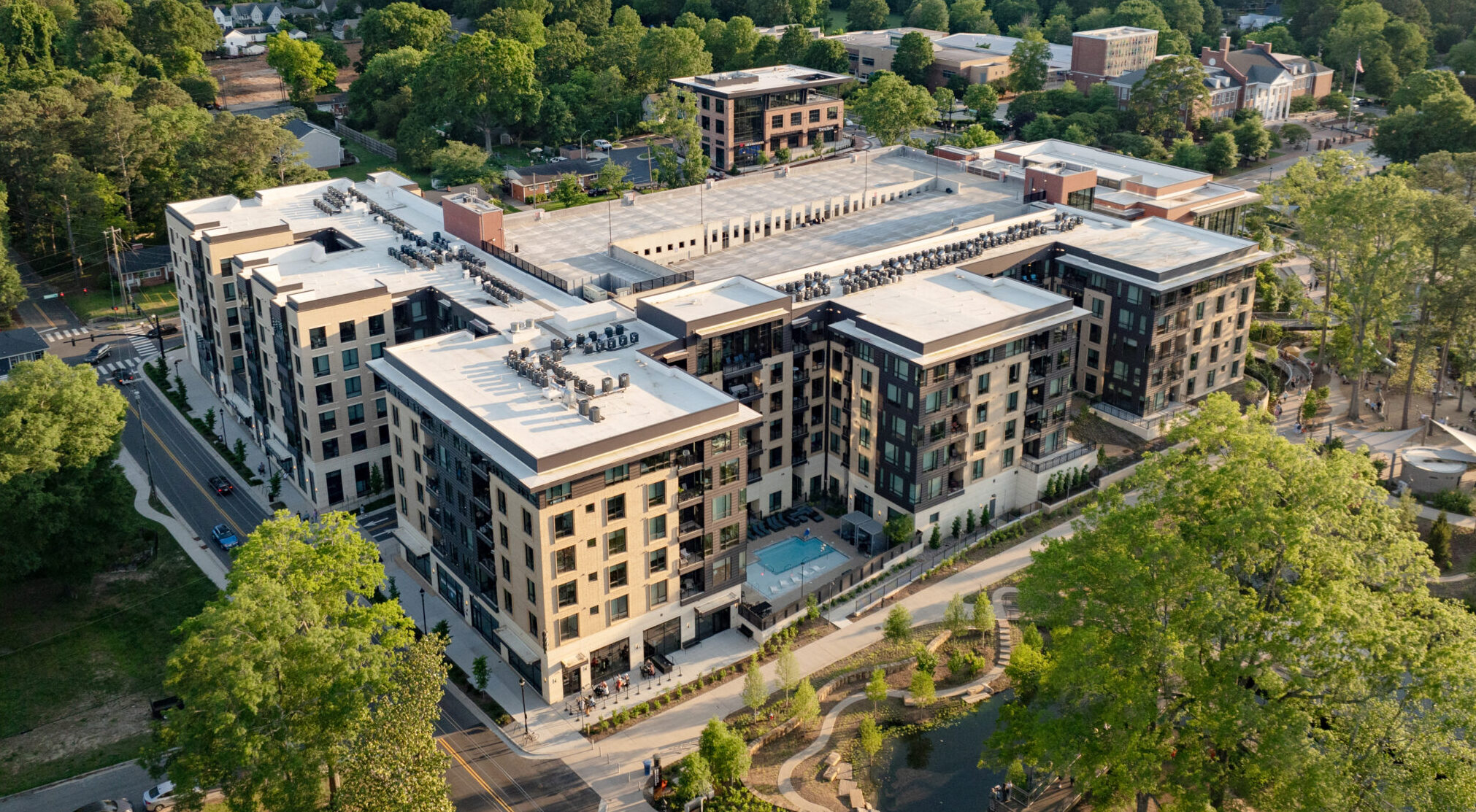

Reimagining Our Cities for a Sustainable Tomorrow
Urban design is no longer just about aesthetics or functionality—it’s about shaping the very foundation of communities to address the growing complexities of the 21st century. Challenges such as climate change, population growth, and rapid technological advancements demand innovative, forward-thinking solutions. At Cline, we believe that urban design unlocks the potential of cities by creating spaces that are sustainable, inclusive, and resilient. Our work focuses on reimagining urban spaces that stand the test of time, offering communities places to thrive both today and in the future.
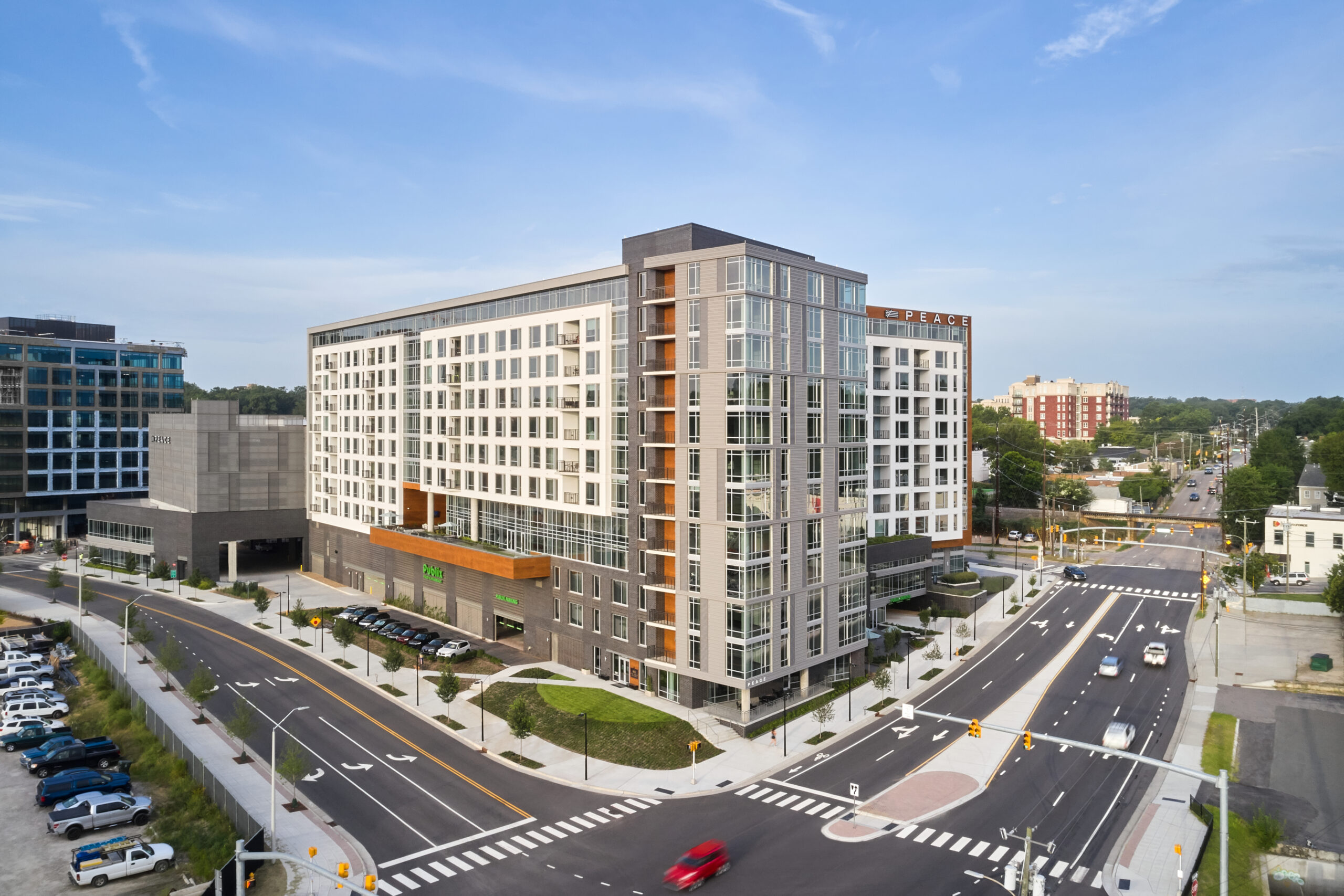
Designing for Sustainability: Building a Greener Future
With escalating climate concerns, sustainable urban design has become imperative. At Cline, we integrate sustainability at every phase of the design process, creating spaces that minimize environmental impact, embrace renewable energy, and incorporate green infrastructure.
Green Infrastructure Solutions: Urban areas need more than just concrete solutions—they need biodynamic systems to enhance both functionality and livability. Urban gardens, green roofs, rain gardens, and permeable pavements mitigate heat islands, improve air and water quality, and reduce stormwater runoff. These features also transform city spaces into inviting places for community connection and ecological balance.
Renewable Energy Integration: Adopting solar, wind, and EV charging solutions makes urban spaces more resilient and environmentally conscious. Cities that embrace renewable technologies not only cut emissions but also foster energy resilience and economic growth. At Cline, we incorporate these solutions into every project, contributing to a sustainable future for the communities we serve.
Inclusivity: Cities Designed for Everyone
At the heart of every thriving urban environment is its people. An inclusive city welcomes residents of all backgrounds, abilities, and ages, ensuring that public spaces are accessible, safe, and engaging. Cline applies universal design principles to create spaces usable by everyone—from children to older adults and individuals with disabilities. We believe that a thriving urban space is built on how well it meets the diverse needs of its people.
We don’t just design for communities; we design with them.
Through participatory workshops, public consultations, and digital feedback platforms, we invite residents to help shape their surroundings. A prime example is The Acorn on Person Street. This seven-story residential building was developed through close collaboration with stakeholders, ensuring the design reflected the community’s vision. The building’s U-shaped courtyard creates a private oasis within the urban fabric, balancing quiet spaces with vibrant pedestrian energy. Located near downtown Raleigh, it offers a dynamic connection to the city while serving as a peaceful retreat.
Resilience: Preparing for Uncertainty
In today’s unpredictable world, cities must adapt to social, economic, and environmental changes. Urban resilience ensures that communities can withstand disruptions and emerge stronger.
Climate Resilience Strategies: Infrastructure must be ready to handle extreme weather and environmental challenges. Cline incorporates holistic planning principles to reduce the risk of flooding, and to mitigate future climate risks. Nature-based solutions—such as wetlands and green corridors—enhance cities’ capacity to absorb shocks and recover quickly from disruptions.
Resilient cities foster local businesses, mixed-use spaces, and affordable housing to support communities.
The Willard Street Apartments exemplify this approach. Born from the vision of local advocates like Durham CAN and the Coalition for Affordable Housing and Transit, this development offers 82 affordable units for resident. Located adjacent to Durham Station and within walking distance of downtown landmarks, it provides easy access to transit and amenities. With a focus on community, the development offers a secure plaza, playground, picnic shelter, and high-speed internet, while its design honors Durham’s rich African American history through vibrant artwork.
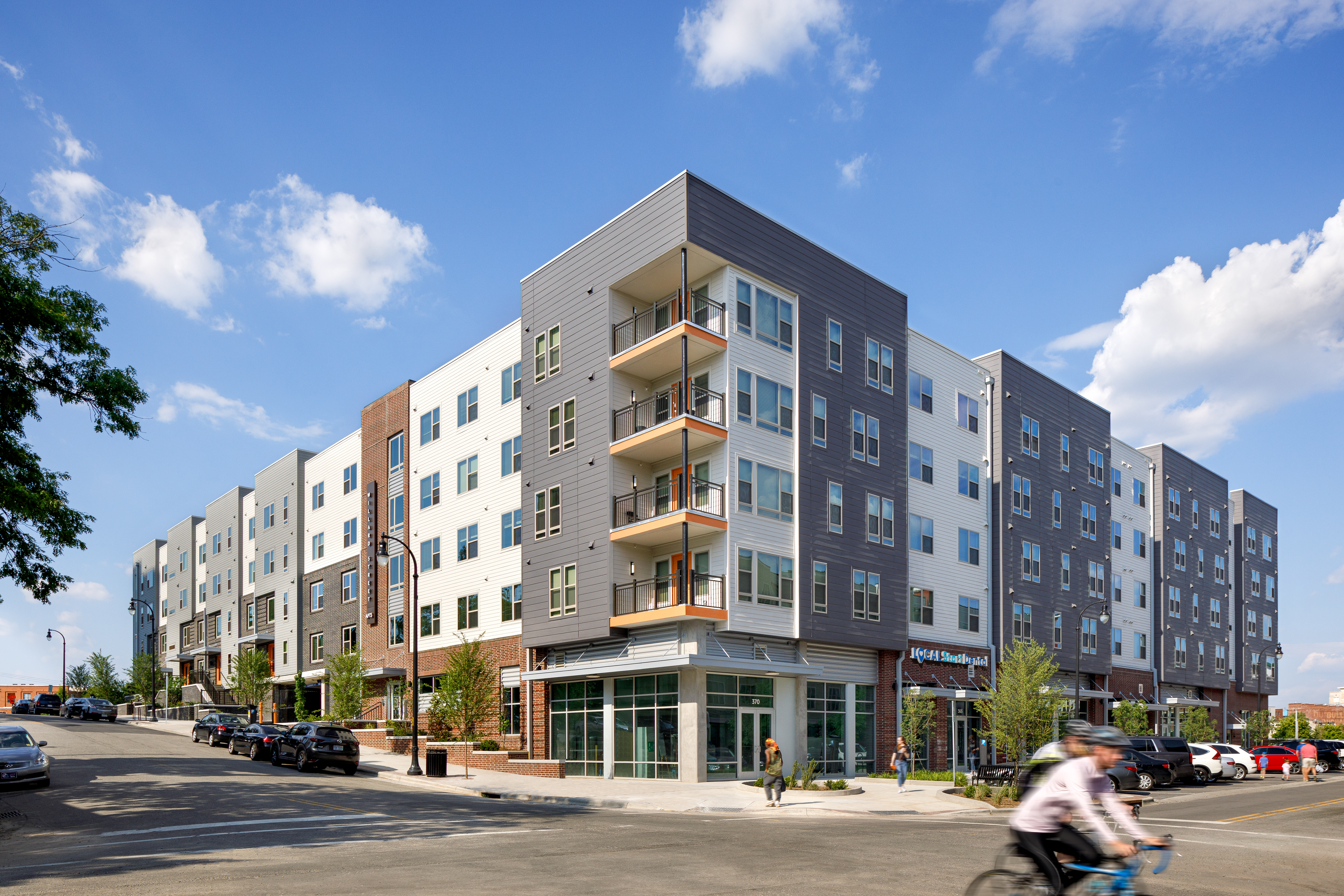
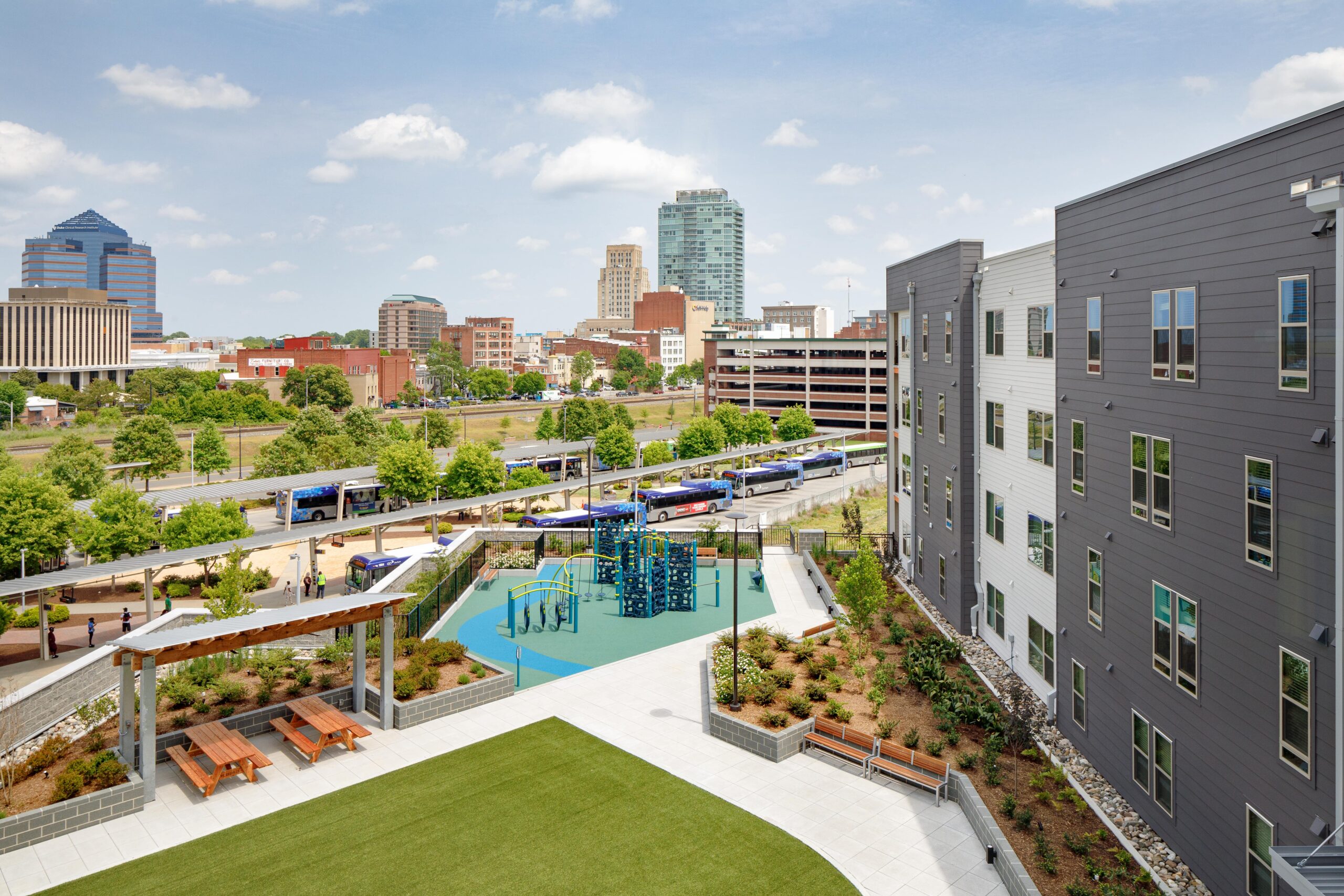
Blending Innovation with Heritage: Smart Cities in Action
Technology is reshaping urban design, enabling cities to become more efficient, responsive, and adaptive to residents’ evolving needs. Through smart technologies—such as the Internet of Things (IoT), artificial intelligence (AI), and big data analytics—urban spaces can optimize energy consumption, reduce traffic congestion, and monitor environmental conditions in real-time. Smart grids, intelligent transportation systems, and air-quality sensors help cities become more sustainable while improving quality of life.
The Forge at Raleigh Iron Works exemplifies how innovation can coexist with history. Built on the site of the former Peden Steel Company, this mixed-use development preserves the industrial character of the original structures through adaptive reuse. Architectural elements like exposed steel frameworks and salvaged materials serve as focal points, blending old and new. Communal spaces—including a shipping-container-inspired pool—reflect the site’s heritage while fostering community interaction.
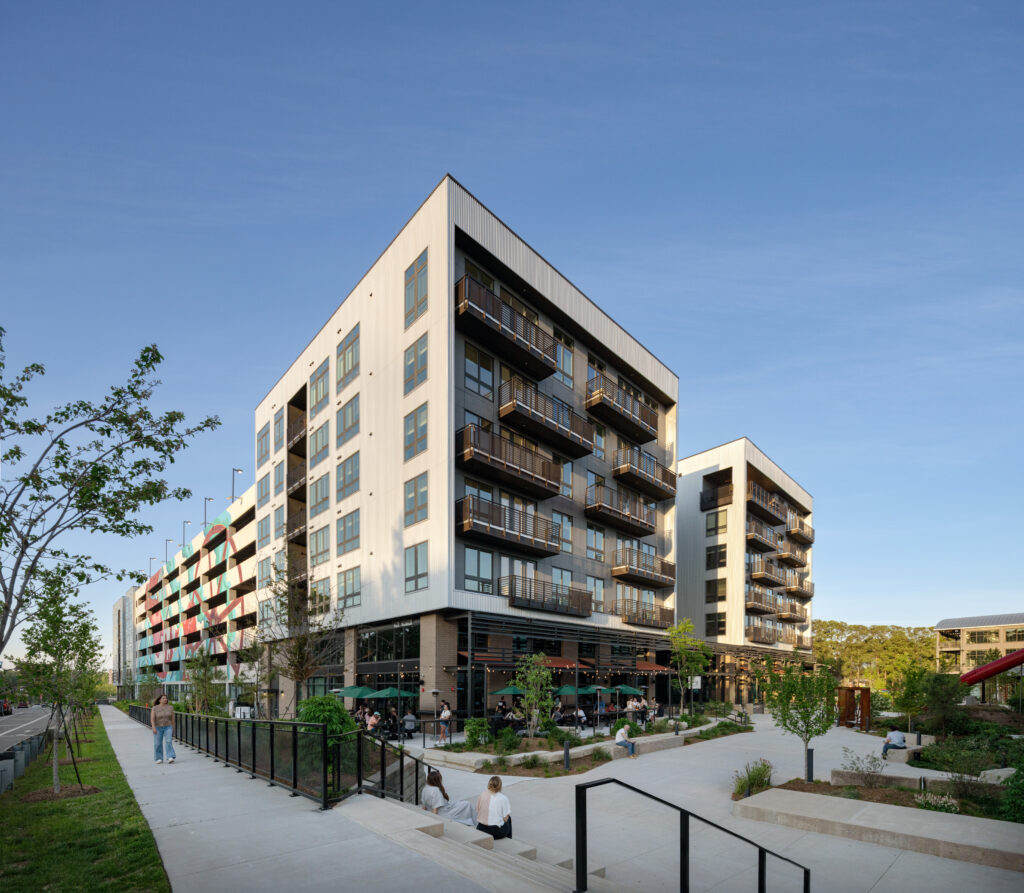
The Platform in West End Raleigh shows how smart city principles shape future-ready developments.
This multi-use, pedestrian-friendly project blends residential, retail, and coworking environments, creating flexibility to meet evolving community needs. Walkways and public plazas encourage interaction, while proximity to Raleigh Union Station promotes a transit-oriented lifestyle, reducing car dependence and fostering connectivity. These projects exemplify how thoughtful design and smart technologies create adaptable, sustainable spaces that honor both heritage and future needs.
Shaping Tomorrow, Today: Cline’s Vision for the Future
At Cline, we envision cities that are sustainable, inclusive, and resilient. Whether through adaptive reuse at Raleigh Iron Works, pedestrian-focused design at Platform, or mixed-use spaces like The Willard, we continuously evolve our approach to meet future challenges.
Looking ahead, we are committed to advancing sustainability, technology integration, and community-driven solutions. A key focus of our future projects will be on equity and affordability, ensuring urban spaces are welcoming and accessible for all residents.
A Call to Collaborate for Vibrant Urban Futures
Urban design is about more than just buildings—it’s about creating spaces where people connect, innovate, and grow. At Cline, we believe in the power of collaboration between developers, city officials, and residents to build environments that inspire and uplift. Together, we can create urban spaces that reflect sustainability, inclusion, and resilience, ensuring the longevity and prosperity of our cities.
Let’s design a future where every street, plaza, and building contributes to a healthier, more connected world. Join us in reimagining the urban landscapes of tomorrow—starting today.
